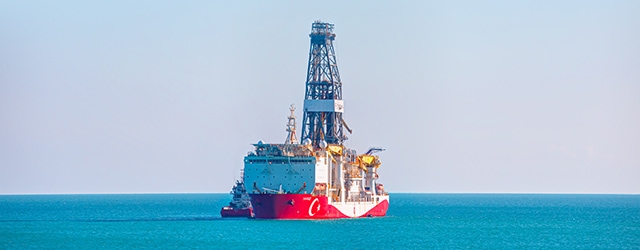Turkish aspirations to become an energy exporter may clash with a Greek-led coalition of states.

As world leaders uneasily tracked the tense face-off between Turkey and a Greek-led coalition over Ankara’s controversial maneuvres in the Aphrodite gas field south of Cyprus in September, a very different story was unfolding to the north, in the Black Sea, where Turkey announced the discovery of a new, 320 billion cubic-meter gas field, two-and-a-half times bigger than Aphrodite.
Fully developed, Tuna—named after the Turkish word for the Danube—could bolster Ankara’s drive to become a net energy exporter, ending a dependence on Russia, Azerbaijan and Turkmenistan that costs it some 2% of GDP a year. President Recep Tayyip Erdoan has said that gas production from Tuna 1 will be available by 2023, the centenary of modern Turkey’s foundation.
“If Turkey starts production and investors are able to recoup their money, the game may change,” declared Foreign Reports consulting, noting that cooperation among Black Sea oil-producing countries has yielded a better track record than has the Eastern Mediterranean, where age-old antagonisms still hold sway.
So, will the Big Tuna really change the outlook for Turkey?
Some close observers are skeptical, pointing out that the new gas field isn’t actually that big—it’s sufficient to last seven years, assuming additional nearby finds aren’t made—and that Ankara may respond to its windfall by boosting spending ahead of the next election.
“There are reasons to be cautious,” says Jason Tuvey, emerging markets analyst at Capital Economics. “It will take time for the necessary infrastructure to be put in place. And even then, the boost to Turkey’s external position may only be temporary.”
While it has withstood the Covid-19 pandemic better than many other countries, Turkey has watched exports and tourism earnings drop over the summer. Investors’ nerves have been unsettled by talk in Brussels of sanctions and perhaps even suspension of Turkey’s 25-year-old customs union with the EU. Coupled with fears surrounding Ankara’s adherence to its external debt-repayment schedule and its balance of payments, these concerns have put strong pressure on the lira, pushing it above the key 7.5 to the US dollar range, with some analysts suggesting that 9.25 lira to the US dollar could be reached by the end of next year.
Yet, if 2020 has taught anything, it’s that any good news will be treasured. At the very least, Tuna 1 provides Turkey with a much-needed glimmer of light.



